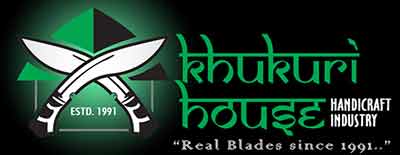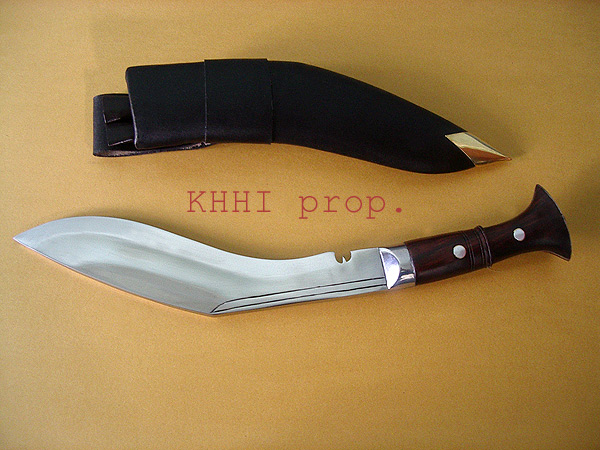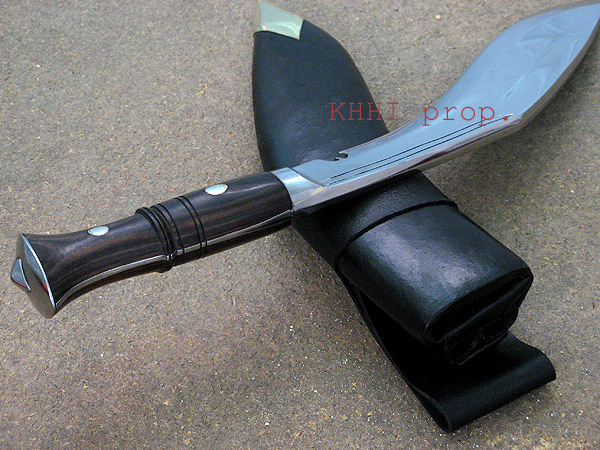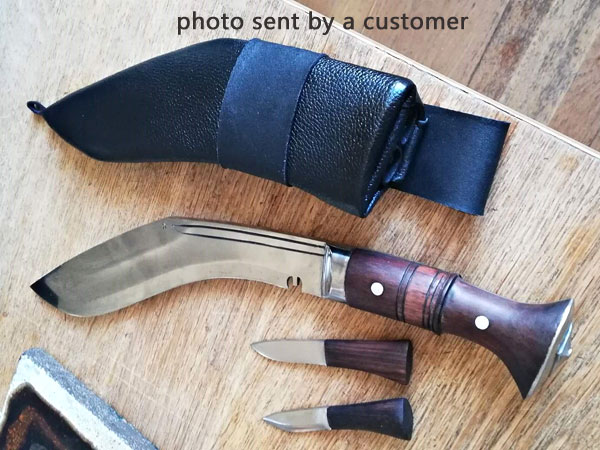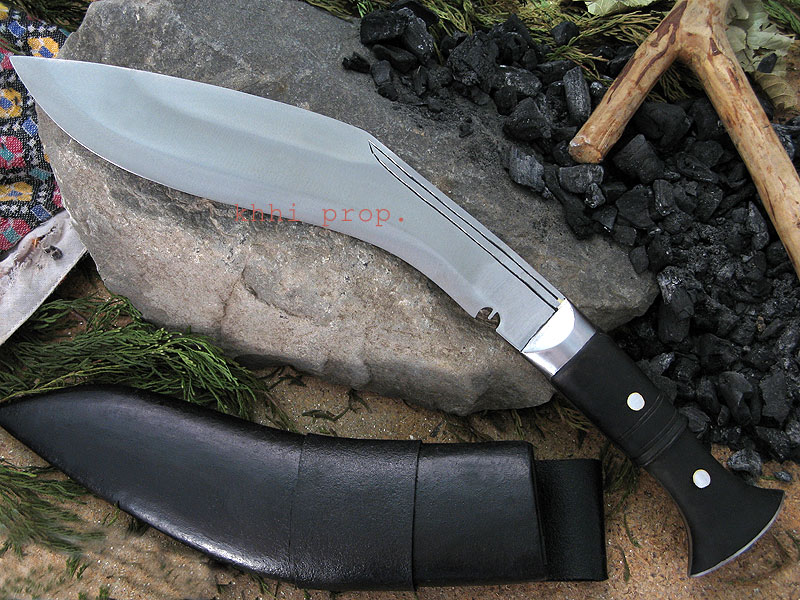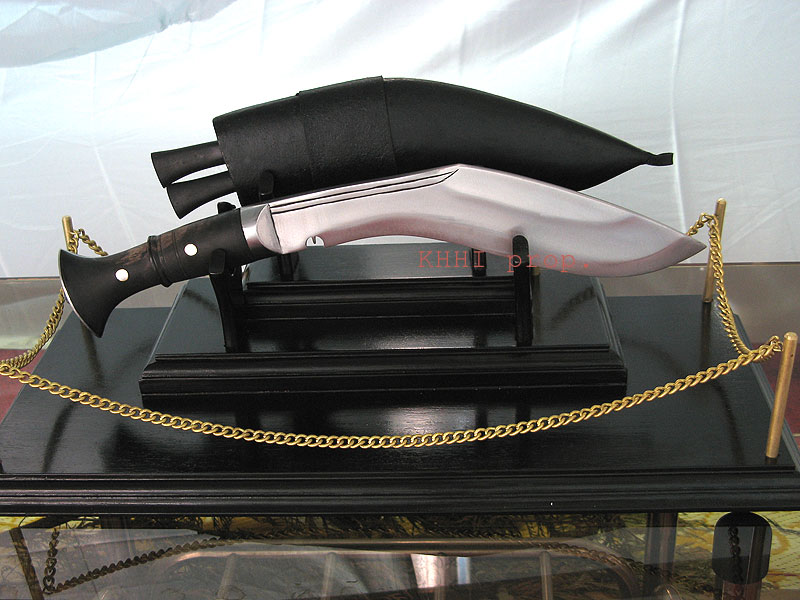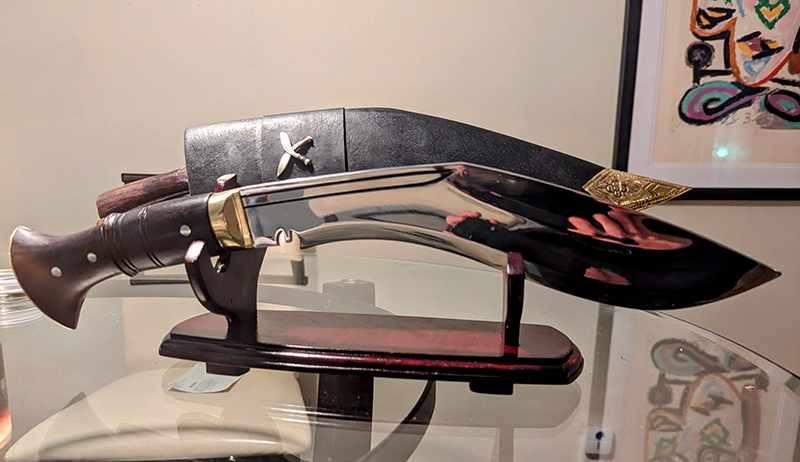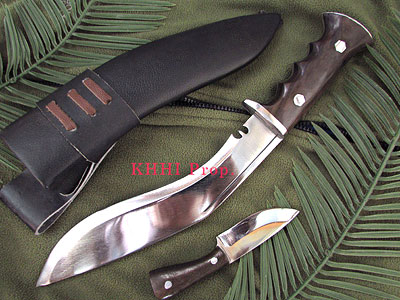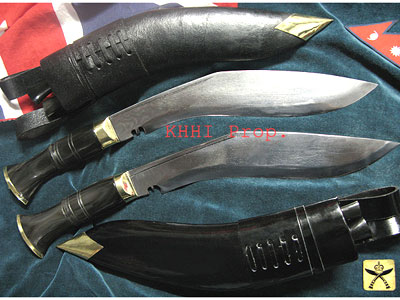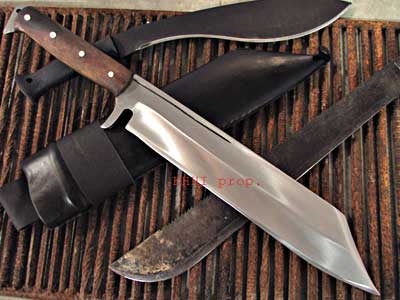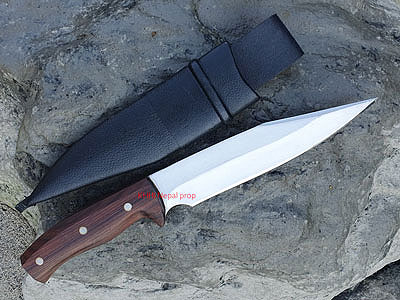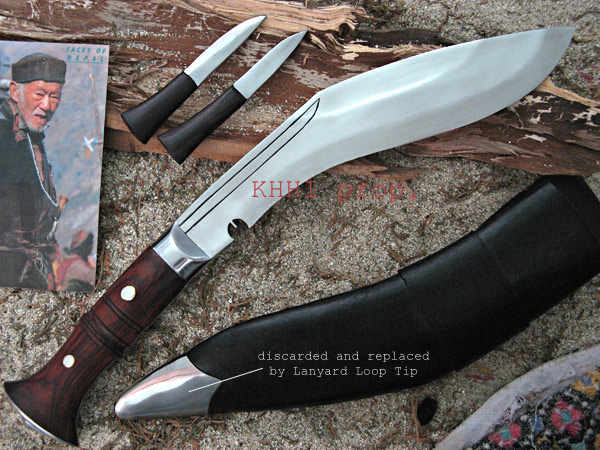
Panawal Dotted (Supreme)
A heavy-duty version forged to endure, to last the harshest treatment; the mother (source) of all Panawal versions..
Delivery: Estimated between Jun 07, 2024 and Jun 17, 2024
Item Location: Nepal
Default Specification
- Blade Size (in): 10
- Handle Size (in): 5.5
- Handle Material: Rosewood
- Actual Weight (gm): 675
- Overall weight (gm): 950
- Shipping weight (gm): 1250
- Blade finishing: Polished
- Blade sharpness: Standard (very sharp)
- Blade material: 5160
- Place of Origin: Dharan, Eastern Nepal
- Accompanying knives/B-up: Karda Chakmak
- Blade thickness (mm): 10
- Handle finishing: Polished
- Sheath: Water buffalo leather
- Tang type: Full Flat
- Fixture: Iron
- Edge grinding: Semi convex
- Edge Hardness: 55-57 hrc
- Blade (panel) Grinding: Chirra
- Function: Heavy Duty, Indoor, Domestic use, Jungle warfare, Regular Work, Hunting
Panawal Dotted (Supreme) Khukuri = Semi Chirra Blade + Full Flat Tang Riveted Handle. Farmer’s first choice kukri.
“Panawal Dotted” was the first PANAWAL kukri done by Khukuri House in 1989-90. It is actually the source of all sorts of Panawal kukri knives found these days.
the term "Panawal" explained... see photos carefully 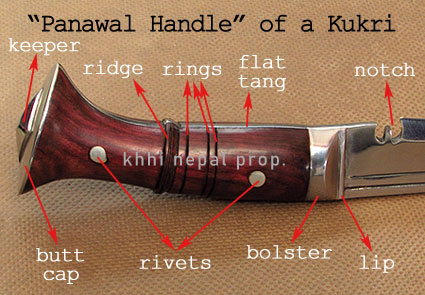
Panawal in strict khukuri term means full-flat tang (riveted) handle. The khukuri blade comes with a one-piece full flat tang in which two handle scales are secured by glue (epoxy) and then riveted to strengthen the whole fixture. “Dotted” used for the name of the khukuri refers to the points or “Khil” in Nepalese made by rivets in the handle. Here a unique distinct handle is crafted where the end of the blade (tang) in the handle section is flat, not narrow and pointed as in other knives. The tang thoroughly follows the shape of the handle and is also visible on both sides of the handle. It is further secured by steel cap and bolster from the two ends of the handle. The Panawal handle is especially designed for heavy stressful work; to endure and to last the harshest treatment. “Panawal Dotted” is the mother (source) of all various Panawal versions crafted by KHHI nepal and many other local companies.
the BLADE...
Panawal Dotted khukuri has a different and special blade forged to withstand the rough and tough treatment. A semi-fuller layer or hump that runs across the main (above) panel of the blade is forged to give more strength and durability to the width of the blade while in use and also to cut down unnecessary weight of the blade. The curvature gives support to the flat surface by evenly distributing the impact force generated when striking against a target. It is also a display of true craftsmanship as it is very hard to craft. Since a Panawal Dotted is a heavy version the cut down in the weight makes the khukuri easier to use. The knife's balance is such that though heavier it is easier to work with. The thick full tang handle also gives good counter balance to the blade.
[IMP note on Sheath: the steel chape/tip is discarded and instead a lanyard loop is fitted in the tip. A string/cord can go through it to tie the sheath around thigh. This minimizes the wobbling even in full motion. This makes the knife more useful]
Reviving the Panawal handle: has an interesting story behind it.
Although the Panawal khukuri (with "Full Tang handle") was brought into practice in history long ago and this sort was particularly used in the 2nd world war days by Gurkhas, this 'handle' was on the verge of extinction in the later years after mid 20th century. It is only after the establishment of Khukuri House (KH) now KHHI in 1991 TB BK, realized the importance of a hardcore working kukri and started the production of “Panawal” version for the very reason in large scale. It was therefore only from 1993 khukuri's with Panawal Handles came back into limelight and stormed the khukuri market instantly. Soon it was so much in demand that people started making “Panawal” khukuri in various shapes, sizes and started adopting different styles and names using the same “Panawal-Handle” system.
Size of blade: 10 inch approx.
Materials: Water buffalo leather scabbard, twin riveted full flat tang rosewood handle, 2 x small knives
Origin: Dharan, Eastern Nepal
